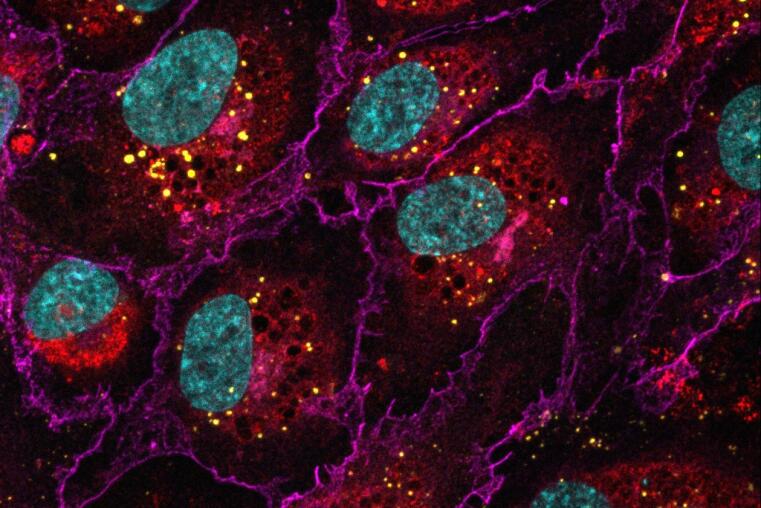
PROJECT A10
Specification and Dynamic Interactions of Arterial Progenitor Cells
Angiogenesis involves processes such as endothelial cell (EC) sprouting and proliferation but also the formation of arteries and veins. These events involve multiple signaling interactions at cellular interfaces, which are tightly regulated and highly dynamic. Our ongoing work has uncovered that endothelial tip cells, which lead and guide capillary sprouts, are subsequently directed into growing arteries and thereby mediate the expansion of these vessels (Pitulescu et al., unpublished). However, the precise regulation and dynamics of arterial EC specification in the late embryo and in postnatal development are currently almost completely unknown. Our work focuses on ephrin-B2, which is a transmembrane ligand for the Eph family receptor EphB4 and an important regulator of vascular morphogenesis. While ephrin-B2 marks arteries, EphB4 expression predominantly labels veins. Remarkably, ephrin-B2 not only plays an essential role in artery formation during development but also promotes EC sprouting by modulating vascular endothelial growth factor A (VEGF-A) signaling. Given the critical roles of Eph/ephrin molecules in the regulation of cellular behavior such as repulsion, adhesion and motility, we propose to unravel the precise role of ephrin-B2 and the contribution of its interaction with EphB4 in artery formation and artery-vein segregation. With a powerful combination of genetically modified mice, RNA sequencing and in vitro assays, we will characterize the role of EphB4/ephrin-B2 interactions in the specification of arterial cells and the expansion of growing arteries in mouse retina, brain and lung. Moreover, we will identify new regulators of these processes.



